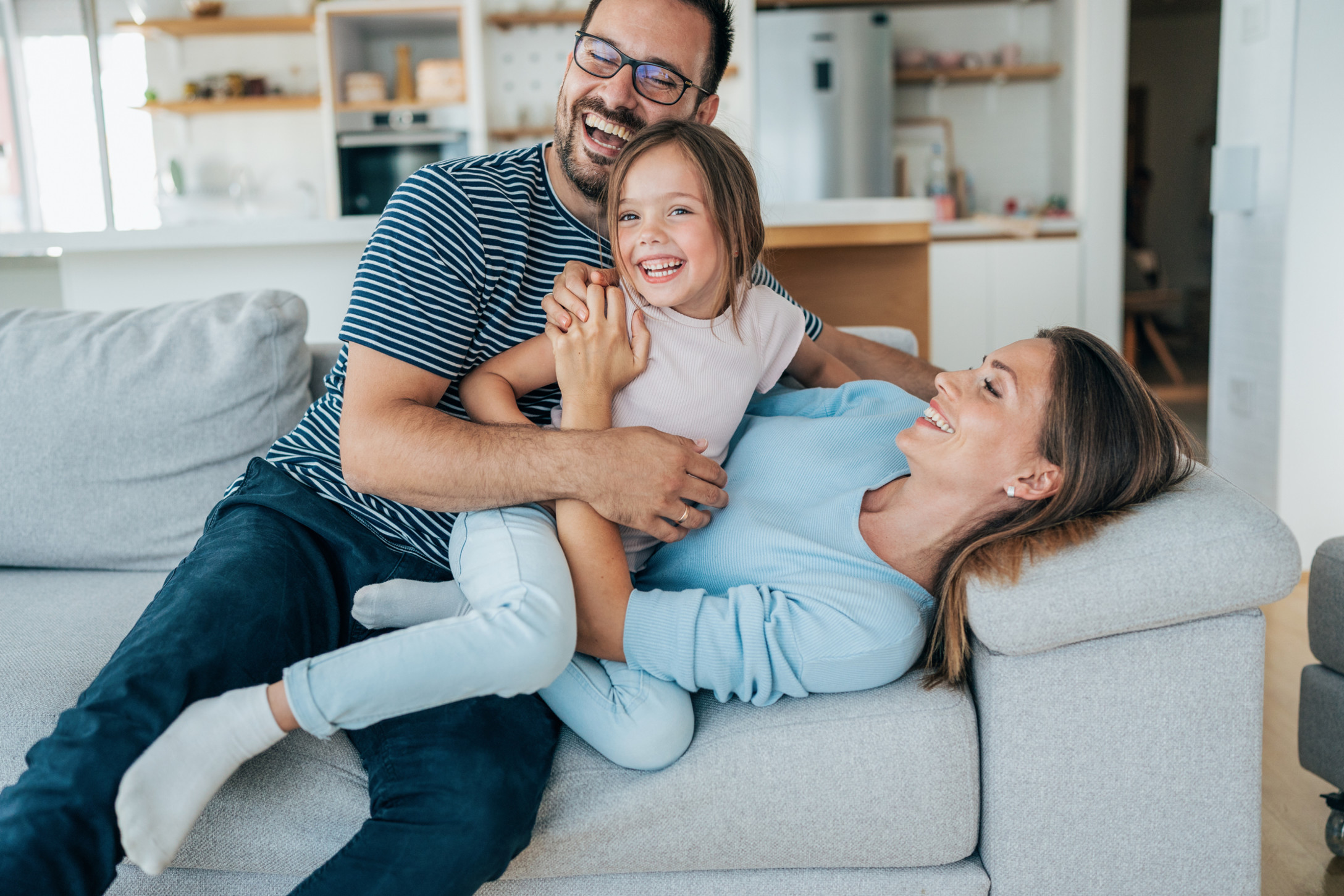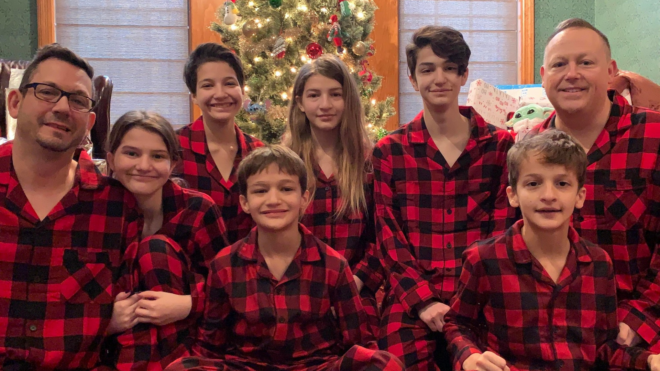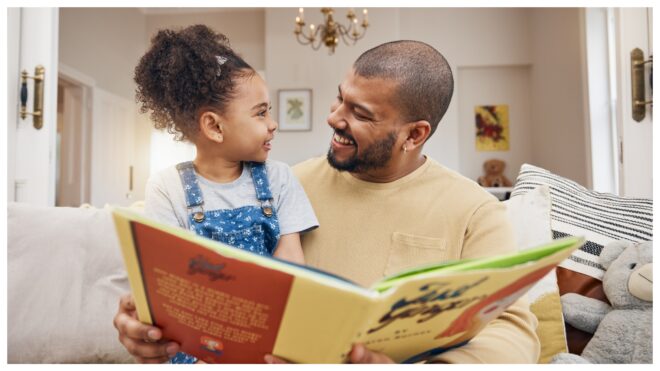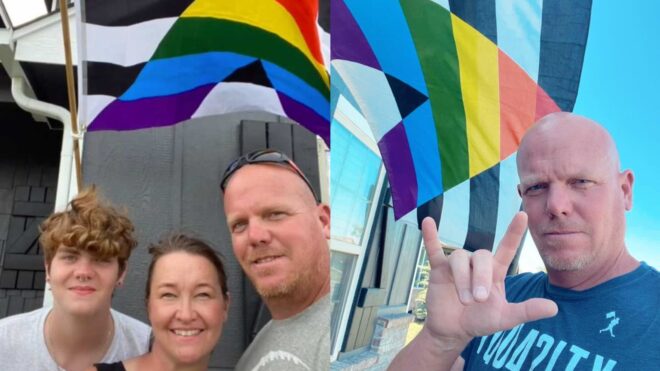
On a Sunday afternoon, I was out at lunch with my family when I noticed the server who was waiting on our table was a childhood friend of mine. I hadn’t seen her in what felt like centuries. I introduced her to my husband and then to our daughter who was sitting across the table from me. With gushing eyes, she couldn’t believe she was “meeting my daughter,” cooing over how much she looks like me. The sentiment was sweet and heartfelt, and her feelings were so loving and pure.
Unfortunately, it’s genetically impossible for her to look anything like me because in reality the blonde-haired and blue-eyed 8-year-old across from me is my husband’s daughter, and, logistically, my stepdaugher.
But I don’t call her that. For all intents and purposes, she is my daughter. No step. No half. Just daughter.
I was 26 when I met my now-husband.
From our first chat and date, I knew he had a daughter. He was divorced and, unfortunately, his ex-wife wasn’t in the picture. Over the course of our first few dates, it was clear he was looking for something serious — someone serious.
At 26, it was a tall order to take on the role of becoming a parent overnight.
Many moms are there from the sleepless nights, the diapers, the first words — and they get to grow and learn and thrive alongside their child. Stepping into a child’s life when so much has already been lived can be incredibly complicated and challenging.
But I knew in my heart where I stood.
Falling in love with my husband meant that I fell just as hard for his daughter. The days at the park, the movie nights, the bike riding, the lunches, and the dinners. We became a family on our own terms, in our own right, and in our own way.
When he eventually asked for my hand in marriage, he was asking me to be the mother of his daughter.
I knew that saying yes meant that I wasn’t just becoming a wife but also becoming a mother. I would be the female role model that this little girl looks to for love, support, and guidance. In anyone else’s eyes, I would become her stepmother. But for us, I’m simply just her momma.
The word “stepmother” has such a negative connotation in society.
Whenever you hear that term, you’re instantly taken back to Cinderella and her “evil stepmother” who made her wash the floors and sweep the stairs. Stepparents are often seen as terrible, whether it’s subconscious or not. Society has tarnished the image of the stepparent and made them into bad people who don’t actually want what’s best for the child.
Why the whole “step” additive, anyway?
When you call someone a “stepmom” or a “stepdad” it’s as if they’re not a whole parent. For many families, stepparents are the ones who are stepping up and being there on a daily, regular basis. Some of them are the ones making lunches, doing drop-offs, helping with homework, and leading the bedtime routine. Why not just a different version of “Mom” or “Dad”? Why add the “step” to make them seem as though they’re “stepped over” or a "step under" a child’s biological parents?
Many stepparents would agree that when you introduce them as a “step,” they’re seen as less important.
When you’re introduced that way, the school will ask where the “real mom or dad is.” Or doctors will want to know if you have a right to information. Other parents will gossip about who divorced who. It becomes a cesspool of confusion, chaos, and uncertainty.
In some families, the “real” parents aren’t always the biological ones.
So many family dynamics operate in so many different ways, and many of them do not need shared blood and DNA to prove they are a whole unit. Some children are cared for more so by parents who stepped in later in life than the ones who brought them into this world.
For my family, I never want my husband’s daughter to feel she is “less.”
I always introduce her as my daughter to anyone I meet. Maybe that will confuse some people and make them question some things. But that’s their own questions to have and deal with.
I never want my daughter to feel as though she’s loved any less — or any less my family — due to some stupid label society feels is needed. In our house, we’re not a blended family, and we’re not a half family. We’re simply just family.






